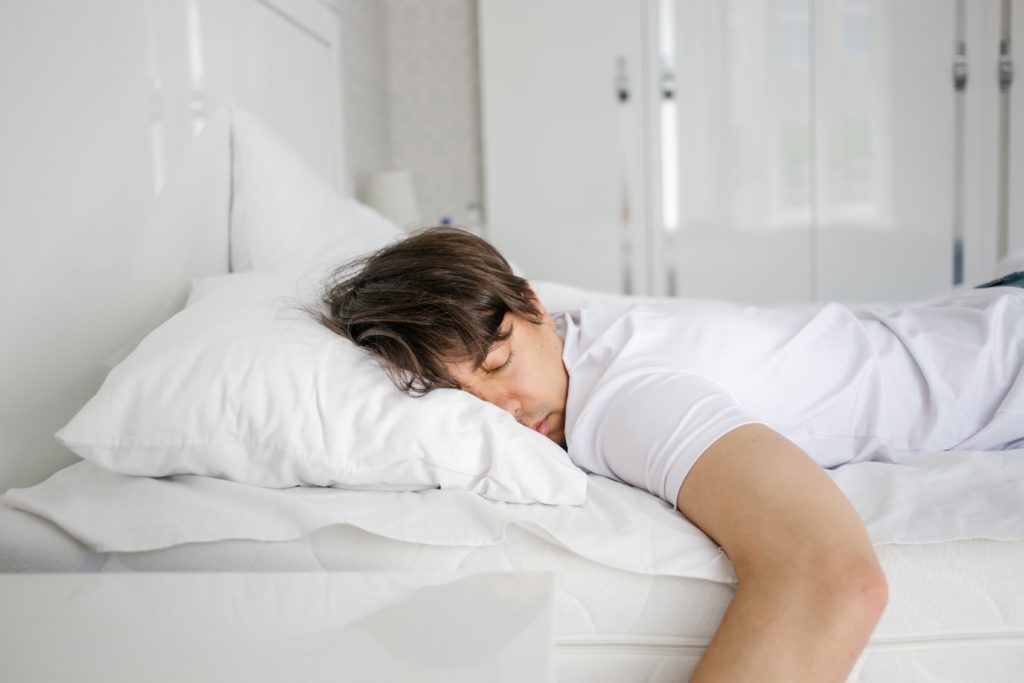📖 Article Content 📖
Just like grabbing a good meal, sipping some water, or getting your body moving, catching some quality Zs is a big piece of feeling good all over. It’s a basic need, really, and it touches every part of how we feel and what we can do each day. When we don't get enough shut-eye, well, things can feel a bit out of whack, can't they? Our bodies and minds just don't work as smoothly.
For a long while, people kind of thought sleep was just a quiet time when you weren't doing much, but that's not really the whole picture, is that? Our bodies are doing a lot of behind-the-scenes work when we're snoozing, and sometimes, a lot of little things can get in the way of that good, deep rest we all need. We might wake up feeling tired, or even with aches and pains, not quite sure why.
So, we're going to chat a bit about what really goes on when you close your eyes, why getting enough sleep matters so much, and some simple ways you can make your nights more restful, giving your body the chance to truly recover and feel refreshed. It's about finding that sweet spot where your body can truly mend itself, you know?
Table of Contents
- Why Good Sleep is a Big Deal for Your Well-being
- What Really Happens When You Close Your Eyes?
- How Does Your Body Know When It's Time to Rest?
- Are You Getting Enough Good Quality Sleep?
- Why Do Some Nights Feel So Off?
- Simple Ways to Make Your Nights More Restful
- What to Do If Sleep Just Won't Come Easily?
- Does the Way You Sleep Really Matter?
- Finding Your Most Comfortable Sleep Spot
Why Good Sleep is a Big Deal for Your Well-being
Having a good night's rest is, you know, a pretty big deal for how well your whole self works. It’s like, it fits right in there with eating nourishing things, getting enough water into your system, and moving your body around regularly. All these pieces work together to help you feel your best, so getting decent sleep is very much part of that big picture. When you're asleep, your body gets a real chance to slow down and fix things up. It’s a time for quiet mending and getting back to normal after a busy stretch.
Think of it this way: after a long day, filled with all sorts of doings and happenings, sleep comes along like a gentle comfort. It helps to smooth out the rough edges and puts things back in order. That quiet time lets your body do its important work, making sure you're ready to face what comes next. It's not just about feeling less tired; it's about giving your body the space it needs to truly recover and rebuild. This quiet period is when your body's systems get to tidy up, in a way, preparing you for the next day's activities. It's quite remarkable, really, what happens when you're just lying there, eyes closed.
What Really Happens When You Close Your Eyes?
Have you ever thought about what actually goes on when you're asleep? It's kind of interesting, because before the 1950s, most folks just thought sleep was a really quiet, inactive state. People believed you just, well, sort of turned off for a while. But that's not the whole story, not by a long shot. Over the last fifty years or so, we've learned a whole lot more about what sleep really is, and what it isn't, thanks to lots of looking at brain activity and how our bodies behave when we're snoozing. It's been quite a journey of discovery, that research, and it shows us just how active our bodies are, even when we're completely still.
- Hot Blonde Pov
- Nour Love Is Blind Habibi Outfits
- Course Sidekick Unblur
- Ll Cool J Gay
- Dirty Diana Piercing What Is It
It turns out, sleep is anything but passive. Your brain is doing all sorts of things, cycling through different stages, each with its own special purpose. There's a lot of processing and sorting going on up there, you know, tidying up the day's events and getting ready for new ones. And your body is busy too, mending little bits, growing, and getting itself ready for the next day's adventures. It's a very busy time for your insides, even if you feel completely at rest. So, it's not just about lying there; it's about a whole lot of internal work getting done.
How Does Your Body Know When It's Time to Rest?
So, how does your body know when it's time to feel sleepy and when it's time to wake up? Well, a lot of that is guided by something inside us, a sort of internal timekeeper. This inner clock gets its cues from things outside, like the sunshine we see and the air's warmth around us. When it gets dark, your body starts to get the message that it’s time to wind down, and when the sun comes up, it’s a signal to get going. It’s a pretty clever system, really, helping us stay in tune with the natural rhythm of day and night. It’s almost like your body has its own little schedule, you know, and it tries to stick to it.
This internal timekeeper is quite important for keeping our sleep on track. If we mess with it too much, like staying up really late or waking up at odd hours often, it can throw things off. That’s why keeping a somewhat regular schedule for going to bed and waking up can be quite helpful. It helps your body's inner clock stay steady, which then helps you feel sleepy when you should and awake when you need to be. It’s about working with your body’s natural flow, you see, rather than fighting against it. This rhythm helps your body prepare for rest and for activity, making sure you're more or less ready for what the day or night brings.
Are You Getting Enough Good Quality Sleep?
Do you ever wonder if you're actually getting enough good, solid sleep? For most grown-ups, the aim is to get about seven or more hours of unbroken sleep every single night. It’s not just about the number of hours, though; it’s also about the goodness of that sleep. Getting enough rest, and making sure that rest is of a decent sort, is really quite needed for healthy sleep patterns. If you're waking up feeling tired, even after what you think was enough time in bed, it might be worth thinking about the quality of your sleep. It's a bit like eating a meal; it's not just about filling your stomach, but about getting good things into your body, you know?
A good night's rest means you're not just lying there, but actually going through the different sleep cycles that help your body and mind refresh themselves. If your sleep is often broken, or if it feels light and not truly restful, then even if you spend a lot of time in bed, you might not be getting the real benefits. It's pretty important to aim for that unbroken stretch of sleep, giving your body the full chance to do all its quiet work. So, paying attention to both how long you sleep and how you feel when you wake up can tell you a lot about whether you're getting what you need, basically.
Why Do Some Nights Feel So Off?
Have you ever had those nights where, for some reason, sleep just doesn't come easily, or it feels really broken? There are, actually, quite a few things that can get in the way of a truly good night's rest. It could be something simple, like having too much caffeine late in the day, or perhaps feeling a bit worried about something. Our daily routines, what we eat and drink, and even the thoughts running through our heads can all play a part in how well we sleep. It's not always one big thing, but often a collection of smaller ones that can make a night feel a bit off, you know?
Sometimes, things like being too warm or too cold in your sleeping space can make a difference. Or maybe there's too much noise, or too much light. Even the screen time we have before bed can trick our bodies into thinking it's still daytime, making it harder to drift off. It's pretty common for people to have nights where sleep just feels out of reach, and often, it's about trying to spot what might be getting in the way. Paying a little bit of attention to these daily things can sometimes make a surprisingly big difference to how well you sleep, so it's worth considering.
Simple Ways to Make Your Nights More Restful
If you're looking for ways to get better sleep, there are some pretty straightforward things you can try. For instance, setting up a regular sleep schedule can be a real help. This means trying to go to bed and wake up at roughly the same times each day, even on days off. It helps your body's inner clock stay steady, which, you know, makes it easier for your body to know when it's time to feel sleepy. It's almost like giving your body a gentle nudge towards a consistent rhythm. This kind of routine can make a big difference over time, honestly.
Another simple thing to think about is including some moving around in your daily life. Getting some physical activity during the day can really help you feel more tired at night, making it easier to fall asleep. Just remember not to do anything too energetic right before bed, as that can sometimes have the opposite effect. It's about finding a good balance, you see. Also, making your sleeping space a quiet, dark, and cool spot can be quite helpful. These little changes



